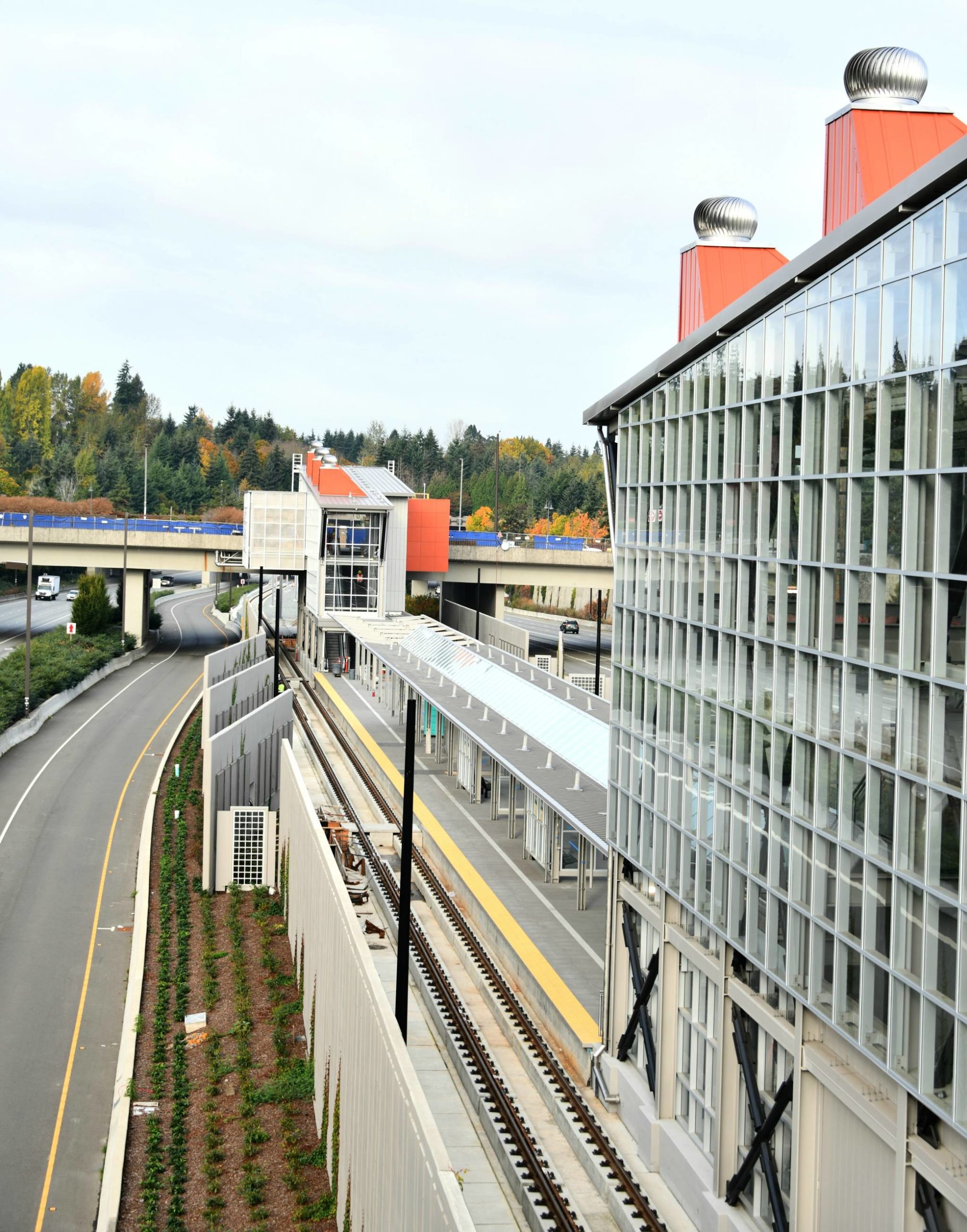For the past few months, the city of Mercer Island stated in letters to the community that it was prepared to take legal action against Sound Transit, noting inconsistencies in the Seattle-based agency’s plans with the terms of the 2017 Settlement Agreement related to the Mercer Island Transit Interchange.
After Sound Transit submitted a Right-of-Way Use Permit Application on Oct. 23 that the city said violated the terms of the agreement, council held a special morning meeting three days later and voted to authorize City Manager Jessi Bon to file a lawsuit against Sound Transit, according to another online letter submitted that day to the community.
It was a unanimous decision, 7-0, at the Oct. 26 meeting to set the lawsuit in motion as the city sets its sights on enforcing the terms of the agreement.
“The City Council cannot let Sound Transit unilaterally rewrite the Settlement Agreement when the City has performed all of its obligations. At the end of the day, a deal is a deal. Sound Transit is not honoring their side of the bargain, and we are confident that the courts will agree,” the Oct. 26 letter stated.
In a statement sent to the Reporter on Oct. 26, Sound Transit said: “Sound Transit is disappointed that the City of Mercer Island has chosen to pursue litigation rather than agree to collaboratively developed plans that enable transit riders to move easily and safely between future light rail service and buses. We will not provide further comment in light of pending litigation.”
A fact sheet the city sent to the Reporter notes that the Oct. 23 application includes extra curb cuts for bus layovers along both sides of North Mercer Way.
“The City fought hard in 2017 to achieve an agreement that facilitated the safe movement of pedestrians and bicycles and minimized traffic on the north side of North Mercer Way. This was to ensure that Mercer Island commuters accessing Westbound I-90 from Island Crest Way would not be negatively impacted by Sound Transit buses,” council wrote in the Oct. 26 letter.
An Aug. 28 blog post on “The Platform,” which is a feature of Sound Transit’s website, said, in part, that “The 2017 agreement with the City clearly outlined requirements for King County Metro Transit’s concurrence with the bus transfer configuration. The City’s claims that the plan violates the agreement are unfounded.”
An Oct. 21 letter shared with the Reporter by Sound Transit includes this section from Sound Transit CEO Peter M. Rogoff to Bon: “Sound Transit spent many months and countless hours complying with the requirement in Section 4.1 of the Settlement Agreement that the parties ‘will work collaboratively with King County Metro to obtain its concurrence where necessary and document such concurrence as necessary.’ Your predecessor as City Manager fully participated in this collaborative process and agreed with the decision made at its conclusion, that Metro’s operational needs require the refinements to the 77th Avenue SE Configuration that Metro identified in its May 10, 2019 letter.”
A previous Reporter story noted that council also voiced concerns that once East Link light rail is up and running, there’s a safety issue with a multitude of bicyclists and pedestrians intermingling with cars and buses next to a packed Park & Ride.
The city said its requests to discuss the matter with Sound Transit and enter into mediation to find a mutually agreeable solution have been denied.
As for litigation costs, the Reporter noted that during a Sept. 15 meeting, council adopted an ordinance to temporarily increase utility tax rates, passed a resolution to authorize interfund loans, and then voted to appropriate $1.5 million in loan proceeds authorized in the resolution.
The Reporter story stated that the temporary 36-month utility tax increase — from Nov. 1, 2020 to Oct. 31, 2023 — is estimated to cost an average single-family residence $55.37 per year. Interfund loans in the resolution are in the amount of $750,000 each, for a combined total of $1.5 million, from the city’s water and utility funds to the general fund.
In the past five years, the city notes that is has provided detailed and expansive technical comments on design plans at the 30 percent, 60 percent and 90 percent stage of plans for the Mercer Island Transit Interchange; reviewed and approved 60-plus permits; and reviewed 4,500-plus pages of plans.
In the Oct. 26 letter, council made it clear that the city’s litigation isn’t meant to halt Sound Transit’s light rail progress: “We remain excited about the arrival of light rail and the opportunities it will offer to the Mercer Island Community, our local businesses, and the region.”
East Link is scheduled to be up and running in 2023 and will feature 10 stations covering 14 miles. Riders will be able to travel from Mercer Island to the University of Washington in 20 minutes.
For more information, visit the city’s Let’s Talk Website at https://letstalk.mercergov.org/Transit-Interchange.


